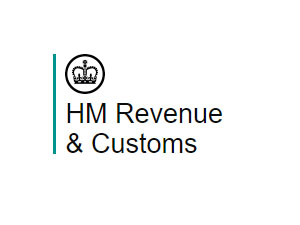 New figures released by HMRC show that the Treasury raked in £5.7bn in inheritance tax receipts in the nine months from April to December 2023. This is £400m more than in the same period a year earlier, continuing the upward trend.
New figures released by HMRC show that the Treasury raked in £5.7bn in inheritance tax receipts in the nine months from April to December 2023. This is £400m more than in the same period a year earlier, continuing the upward trend.
One in every 25 estates pay inheritance tax, although the proportion of families affected is higher, and the freeze on inheritance tax thresholds paired with decades of house price increases is pushing the government’s inheritance tax-take on an upwards trajectory.
For those that are picking up the ‘death tax-tab’, Wealth Club calculations suggest the average bill could increase to £239,000 this 2023/24 tax year, with over 30,000 families having to hand over part of their inheritance to the taxman.
This is a steep 11.5% increase from the £214,000 average paid just three years ago and a 14.4% rise in the number of estates paying the tax.
Nicholas Hyett, investment manager at Wealth Club said: said: “The government’s income from death duties is going up. That makes changes to IHT policy a careful balancing act.
“Cutting rates might win votes, since many see IHT as an unjust grab for money that’s already been taxed once. But the revenue earned is playing an important part in the government’s spending programme, and a shortfall would need to be made up somewhere else.
“Contrary to popular belief, inheritance tax doesn’t just affect the super-rich. Frozen tax brackets mean many who would not consider themselves wealthy will find themselves falling into the IHT bracket in future. Their standard of living hasn’t changed, indeed inflation means it might have gone backwards, but the government now considers them to be wealthy enough to face inheritance tax.
“Even at its current level, IHT affects more families than it appears at first glance. While only 4% of deaths result in an IHT charge, a lot of that is because there is no IHT due when estates are passed on to a spouse. It’s on the death of the spouse that an IHT bill falls due. That suggests the number of families affected is more like 7% or 8%.
“The good news is that with a little planning, there are a number of perfectly legitimate ways to reduce your liability.
“Pensions can be passed on to the next generation relatively tax efficiently, and the nil-rate residential band will help many pass on properties without too much hassle. The greatest IHT threat probably comes from where you least expect it: your ISA. While tax efficient in so many way, ISAs are not IHT free. So, if you do nothing, up to 40% of your long-term savings could end up with the taxman. An alternative is to invest in an AIM ISA, a managed portfolio of AIM shares that can be IHT free after two years. You still get the ISA benefits of tax-free income and growth for as long as you live, but you don’t need to worry about IHT on top.
“For those who don’t expect to need their savings in the near term, and who are prepared to take more risk, investing in early-stage businesses through EIS and SEIS might be worth considering. Not only are they very tax efficient, including being free of IHT after two years, but your money goes to fund entrepreneurial companies, which is great for economic growth and job creation.”


Unfortunately just part of the mix . You can’t have a markedly aging population tied into a fantastic triple lock tied to inflation.
Then coupled with the massively increased NHS and social care requirements without paying for it somehow.
And whilst this government seems determined to squander our revenue on abortive HS2 , mini budgets and Michelle Mone we’ve got to pay our way somehow unless people are seriously advocating we just whack it on our nations credit card for our children’s children to pick up?
You must be logged in to like or dislike this comments.
Click to login
Don't have an account? Click here to register